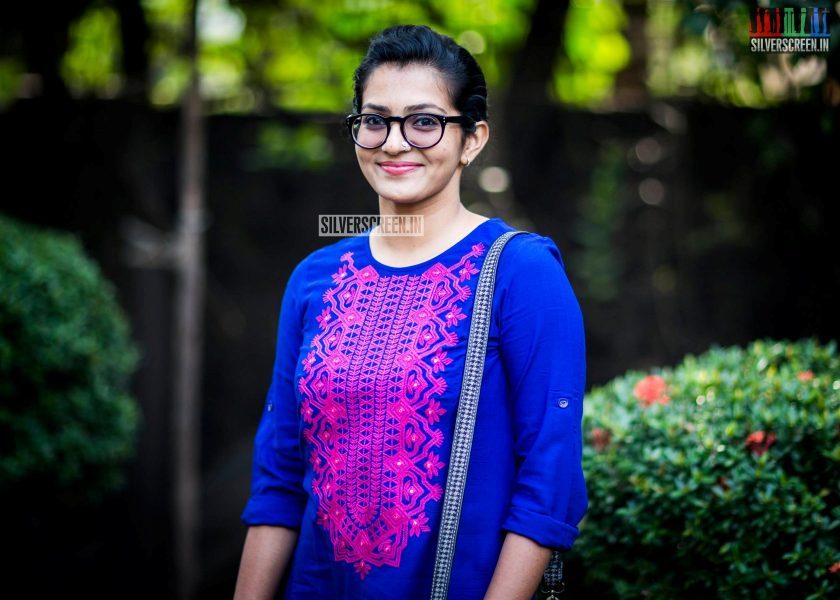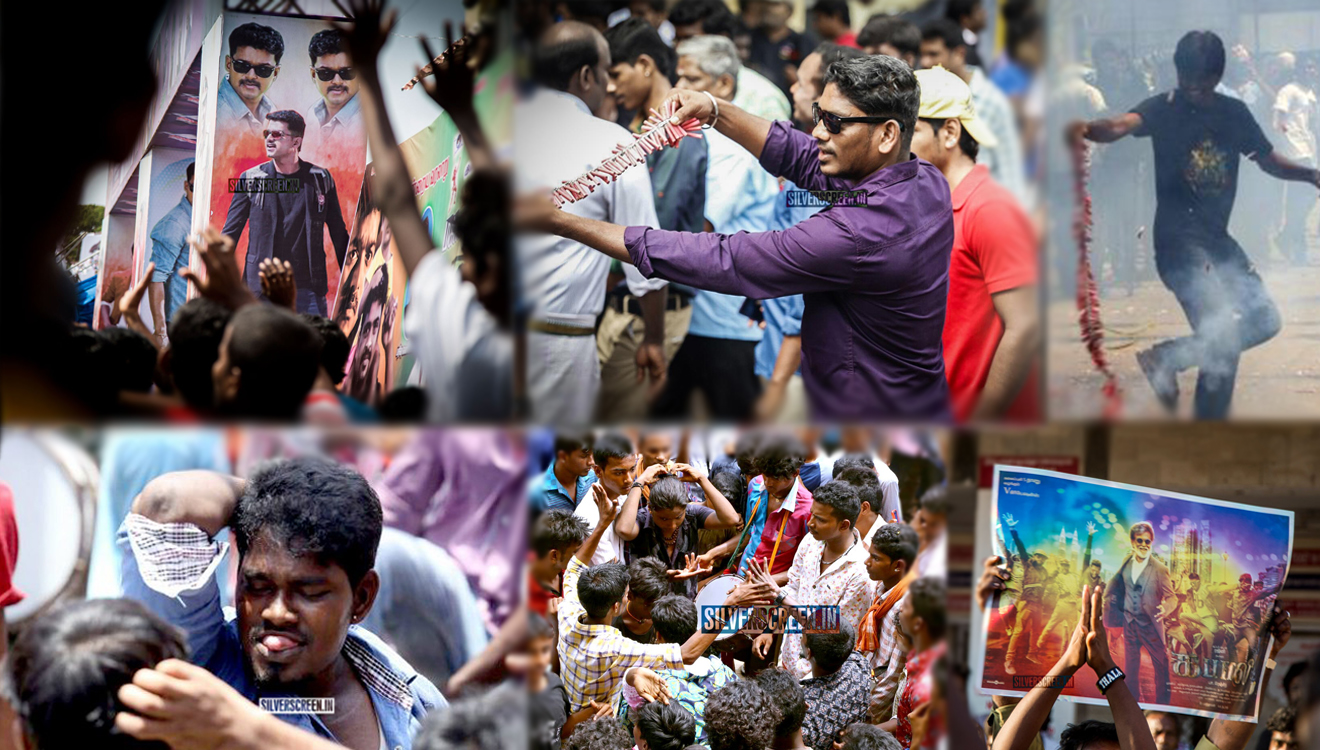Actress Parvathy’s IFFI win assumes greater significance at a time when women in the Malayalam film industry -where patriarchal values still run high – are trying to make their presence felt and their voices heard
Last week, Malayali actor Parvathy Thiruvothu bagged the Best Actress Award at the International Film Festival Of India, thus being the first actor from Kerala to win the Silver Peacock. The 29-year-old artiste has starred in just nine Malayalam films in a career spanning 11 years – a number so small when compared to the filmography of her contemporary male actors. Recently, she forayed into Bollywood with Qarib Qarib Singlle, a romantic comedy directed by Tanuja Chandra, co-starring Irrfan Khan. The IFFI win hints that greater things might be in store for Parvathy this year, including a National Film Award for her performance in Take Off.
Parvathy’s achievement is no mean feat by any measure. Her Take Off comes from an industry which is known for its deep rooted misogyny and moral hypocrisy. In 2017, over 120 films released in Malayalam, and barring three to four films, all were centered around men, set in male territories where the women were barely visible. While Parvathy starred in one of them, another two had Manju Warrier playing the protagonist with aplomb.
One of the top grossing films in 2017 is Chunkzz, a celebration of male libido and sleaze, sans any cinematic merit. A day after Parvathy bagged the award at IFFI, a particular screenshot of a Facebook rant by Omar Lulu, the director of Chunkzz, landed on social media. It showed Omar passing a sexually suggestive remark at a female user. The comment appeared beneath a post in a film discussion group, Cinema Paradiso Club, which has over 86,000 members. After several group members raised objection to the filmmaker’s comment, and the woman demanded a public apology from him, Omar submitted to public pressure, and apologised to the woman. But despite his tasteless misogynist persona, Omar has a considerable number of fans in the state. His Chunkzz collected over Rs 8.60 Crores from Kerala in 16 days. I watched Chunkzz in a theatre in Kochi on the second week of its release. The hall was packed – the majority of the audience being young men in college uniform. Right from scene one, which had the young protagonists of the film leching at their female professor, with a cheesy joke about her naval, the male crowd hooted and applauded.
It is in this industry which is blatantly misogynistic that women like Parvathy, Rima Kallingal and Manju Warrier thrive. For Warrier, the former wife of ‘superstar’ Dileep, it was not at all easy to make a come back to the film industry after their divorce in 2014. It is no secret that her influential ex-husband made efforts to put an end to her film career. However, Warrier slowly and steadily proceeded to cut her own space in the industry, playing lead roles in women-centric films that garnered critical acclaim and fared moderately well.
Meanwhile, in her interviews to the media, Parvathy spoke about feminism, her love for travelling, and her identity as an artiste, all with an infectious sense of independence – something Mollywood was not used to seeing. Traditionally, young actresses in the industry raved about their male co-stars, wedding dreams and their lack of ambition in interviews. Parvathy though, vehemently advocated the importance of scripts with well-defined women characters, and her script choices over the last three years have validated it.
Rima Kallingal, now a successful entrepreneur running a Kochi-based dance company, didn’t quit her acting profession after her marriage to director Aashiq Abu. Last year, Aashiq directed Rani Padmini, a feel-good travel drama starring Rima and Manju Warrier in lead roles. Through social media, Rima regularly expresses her take on politics, sexism in cinema and social issues, shrugging off the numerous trolls and hate comments directed at her.
2017 has been an important and eventful year for this new league of actresses in Malayalam cinema. In February, a young actress was waylaid and sexually abused inside a moving car in Kochi. The perpetrator was a 29-year-old man who had been working as a chauffeur to many celebrities in the industry. He recorded the act of crime on his mobile phone, and told the actress that he was ‘hired’ to do it. What thwarted his plan was the actress’ refusal to stay silent on the matter. She filed a police complaint. The next morning, the news spread, and instantly, her friends in the industry reached out to her, guarding her from the harsh public glare. The AMMA (Association of Malayalam Movie Actors), an organisation headed by a group of senior male actors, held a candle light vigil condemning the incident. However, the support of the superstars and the senior actors visibly waned after Dileep, a highly influential superstar, was arrested by the police in connection with the case as a suspect. Salim Kumar, a National Award-winning actor insulted the victim on social media, and director Lal Jose, one of Dileep’s close friends, who is known as Janapriya (popular) star, even launched a campaign Avanodoppam [‘With Him’] on social media, in response to the campaign Avalodoppam [‘With Her’] that the actress’s friends and supporters were running.
The prime accused, Pulsar Suni, is now behind the bars, and Dileep is out on bail, but the case is far from closed. On the day of his release from Aluva sub-jail where he was housed for over 58 days, his fans gave him a hero’s welcome. Also present were actors Nadirshah Siddique, Ponnamma Babu and Dharmajan. Within days of his release, Dileep was reinstated in the top organisational positions from which he was removed at the time of arrest. While the police say they have strong evidences that prove his involvement in the criminal case, Dileep’s return to Mollywood has been smooth.
Days after the actress was attacked, a pool of 21 women from the Malayalam film industry, including Parvathy and Rima Kallingal, formed the Women In Cinema Collective (WCC) organisation to represent and fight for the interests of women in the field. Some of the demands they have been putting forward include a sexual grievance cell, subsidies for production crews that have 30 percent women, an end to the giant disparity in pay, PFs for women who leave work due to pregnancy, and reservations for women in government-owned studios. The organisation members met Kerala Chief Minister Pinarayi Vijayan in May 2017, and were officially instituted as a society in November.
Recommended
However, the WCC still hasn’t found enough acceptance within the industry, even among their female colleagues. Actresses Lakshmi Priya, Miya and Mamta Mohandas, in separate interviews, stated that there was no need for a separate organisation for women in Malayalam film industry as they had never felt unsafe in it. The WCC’s Facebook page gets hate comments and trolls aplenty from men who call them names such as feminazi and ‘kochamma’.
Despite everything though, the young women in new age Malayalam film industry are moving ahead, winning accolades, associating themselves with projects that matter, reaching out to each other, and setting a fine example of sisterhood along the way. They seem to be in no hurry, and in no mood to retire and fade into oblivion. Parvathy’s next release is My Story, directed by Roshni Dinakar; she’s also a part of Anjali Menon’s next, co-starring Prithviraj and Nazriya Nazim. That aside, the actress also plans exciting trips every now and then.
*****



